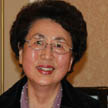I’m a Scientist is like school science lessons meet the X Factor! School students choose which scientist gets a prize of $1000 to communicate their work.
Scientists and students talk on this website. They both break down barriers, have fun and learn. But only the students get to vote.
This zone is the Disease Zone. It has scientists studying the causes and processes of illness . Who gets the prize? YOU decide!









Dear Toadslayer; I searched internet a lot and summarized it as follows ;
Exma(eczema) is a common allergic reaction in children but it also occurs in adults. Childhood eczema often begins in infancy, the rash appearing on the face, neck, and folds of elbows and knees. It may disappear by itself when an offending food is removed from the diet such as milk, fish, or eggs. Treatment involves the use of soothing baths, moisturizing creams, topical steroids, and oral antihistamines to alleviate itching. (Miller-Keane Encyclopedia and Dictionary of Medicine, Nursing, and Allied Health, Seventh Edition. © 2003 by Saunders, an imprint of Elsevier, Inc.)
I found two seemingly contradictory opinions about the use of steroid. Taken together, avoid steroid if possible, by all means!
1. don’t do steroid cream unless necessary, the side affects greatly out weigh the potential good.
2.The best treatment for eczema (in your case) is a combination of steroid-containing creams and anti-allergens.
I know if steroid(Corticosteroid) is used for long term, it will put you into various troubles, but can’t connect it with your hand conditions. Have you visited the allergy specialist?
0
Poor thing!
Please make sure your GP or docter knows about it before it causes permanent damage.
Eczema creams contain a hormone called corticosteroids. Our own body also makes these hormones, they help fight inflammation. So your cream will reduce inflammation where you apply it!
But…..unfortunately the side effect of these corticosteroids is that they stop your fibroblast cells from dividing and doing their job.
Fibroblasts are your skin cells. As you will probably know, you skin cells are constantly being shed and remade. Fibroblasts also produce the collagen and elastin, compounds that help your skin to be strong and flexible. Lots of anti-aging creams try to promote fibroblast growth and the production of collagen and elastin, so old people can keep looking young (fibroblasts don’t work that well anymore when you get older).
So, corticosteroids in the cream you use are stopping skin growth and because skin cells are constantly being shed but not replaced as much, your skin gets really thin.
My advice is to keep an eye on it, make sure your docter knows about it! Try to protect the skin you have by nothing scrubbing it (you’ll remove loads of cells by scrubbing).
I’m not a qualified docter, so discuss this with your own docter, but vitamin D might help in stead of using corticosteroid cream. You get vitamin D from spending time in the sun, vitamin D tablets and certain foods. I have also heard of vitamin A creams that can help, but you will need to buy special vitamin A cream for eczema.
You could do some research online and discuss your findings for alternative creams or vitamin supplements with a pharmacist and your docter!
It probably depends on how bad your eczema is, but I would definitely look in to alternatives to treat it!
0